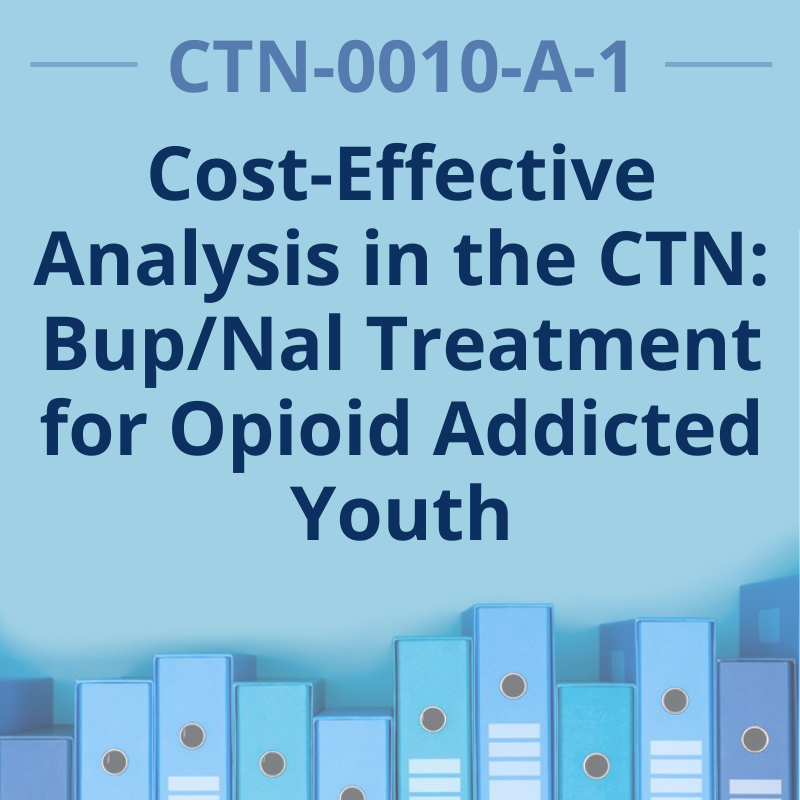CTN-0010-A-1: Cost-Effective Analysis (CEA) in the CTN: Bup/Nal Treatment for Opioid Addicted Youth

Daniel Polsky, PhD
Lead Investigator
Division of General Internal Medicine
University of Pennsylvania School of Medicine
polsky@mail.med.upenn.edu
The goals of this project were to (1) perform a comprehensive economic analysis of Bup/Nx facilitated rehabilitation for opioid dependent adolescents/young adults by analyzing medical costs of treatment, cost-effectiveness, and cost-benefits (estimate the cost-effectiveness of the clinical intervention relative to the standard treatment in terms of cost per opioid free urine and in terms of cost per QALY and estimate net social benefits (Includes reduced crime, improved education and job outcomes, and improved HIV risk behavior); and (2) illustrate the methods for economic analysis of substance abuse interventions in a clinical trial and facilitate replication of these methods by other investigators in the CTN network.
Primary Findings
Results varied somewhat by perspective. BUP cost providers approximately $1,514 more than DETOX per treatment episode in 2006 US dollars (p< 0.001), which translates into $25,049 per additional QALY (with no more than an 86% chance of being cost-effective at up to a $250,000 willingness-to-pay threshold) and $5,610 per additional opioid-free year (p < 0.001) assessed at year 1. For medical insurers, who benefitted from substantial savings on health care costs for those randomized to BUP, BUP cost $1,376/QALY (with only an 86% chance of being cost-effective) and $308/opioid-free year (p<0.001). The point estimate of $31,264 per patient suggests that societal cost savings from BUP may be substantial, but the difference between groups was not significant at conventional levels in part due to the large variance estimated for crime costs which, although the largest savings component at $26,224, were a reflection of infrequently reported high-cost crimes.

Results Article: Polsky D, et al. Cost-Effectiveness of Extended Buprenorphine-Naloxone Treatment for Opioid-Dependent Youth: Data from a Randomized Trial. Addiction 2010;105(9):1616-1624. [get article]
Related Studies
- CTN-0010: Buprenorphine/Naloxone-Facilitated Rehabilitation for Heroin Addicted Adolescents/Young Adult
- CTN-0010-A-2: Comorbid Conditions in Adolescents with Opioid Versus Alcohol/Marijuana Use Disorders
Related Resources